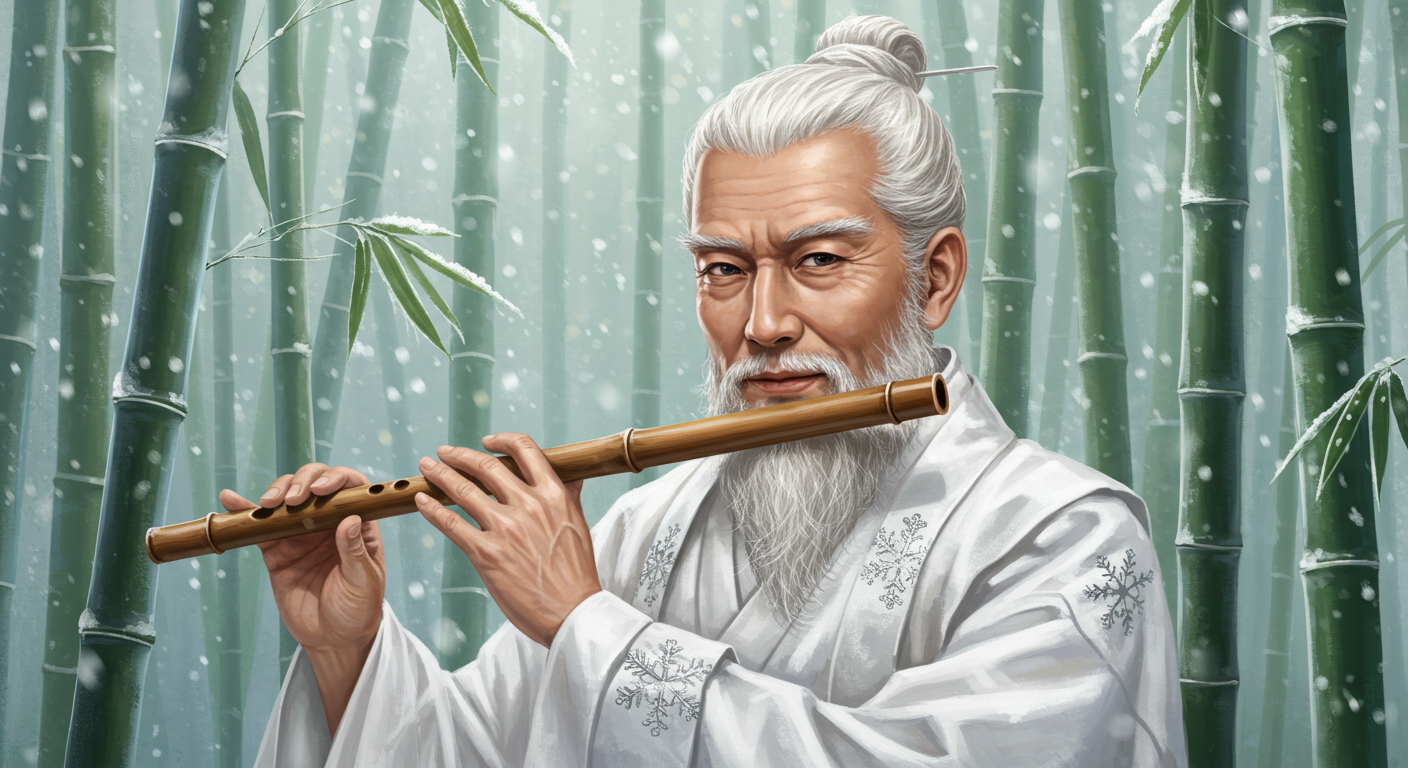Introduction: How Zen Philosophy Transformed My Mind
Zen Philosophy has always guided me toward simplicity and awareness in life. From the first moment I encountered it, I felt subtle shifts in perception. I remember holding a shakuhachi, the traditional Japanese bamboo flute, for the first time. Its fragile body felt alive in my hands, almost like it had its own breath. The sound it produced was not just music; it mirrored my inner state.
Each note demanded attention, patience, and mindfulness. At first, I struggled with even the simplest tones. Mistakes became a teacher rather than a failure. Zen philosophy is not only a set of teachings but a living practice that transforms everyday experiences. The shakuhachi became a daily reminder of impermanence, breath, and presence.
I recall sitting in a quiet room, the light soft through paper windows. My hands trembled slightly as I held the flute. I drew a slow, deep breath and exhaled into the instrument. The first note emerged, shaky and uneven, yet it resonated. In that moment, I felt the first true connection between Zen philosophy and sound.
Learning the shakuhachi is a journey rather than a destination. Patience and surrender become essential companions. I learned to listen deeply—not just to the flute but to life itself. Each practice reinforced the Zen principle of living fully in the present moment.
Through this experience, I realized that sound can be meditation. The pauses between notes are as meaningful as the notes themselves. Even silence carries lessons about awareness. This harmony between sound and stillness became my personal meditation.
read more : Shakuhachi vs Western Flutes: Unique Sound & Spirit
The Essence of Zen Philosophy in Daily Life
Zen Philosophy encourages living fully in each moment. It emphasizes simplicity, acceptance, and awareness. I noticed its impact in small tasks at home. Washing dishes became an exercise in mindfulness. Walking to the market became a moving meditation.
I often recall lessons from [Read more: Morning Zen Practices for Calm]. They reminded me that mindfulness does not need elaborate rituals. Even small, intentional actions can embody Zen philosophy. While practicing with the shakuhachi, this awareness deepened further.
I also began noticing subtle patterns in thought. Negative self-talk would appear, but I learned to observe rather than react. Transitioning from thought to action became smoother. Each breath informed the next note, and each note anchored me in the present moment. Life unfolded naturally when observed without judgment.
Zen teachings are subtle yet profound. Tricycle Magazine – Zen Teachings emphasizes that mindfulness begins with noticing the ordinary. The shakuhachi amplifies this insight. Its tones teach patience, and its pauses cultivate reflection.
Even mundane moments transformed. Drinking tea became a sensory meditation. I noticed the warmth of the cup, the aroma of the leaves, the calm rhythm of sipping. Zen philosophy reminded me that mindfulness is not reserved for formal meditation. It is available in every ordinary moment.
The Shakuhachi as a Path of Breath and Awareness
Learning the shakuhachi reshaped how I experience sound. Breath control became a metaphor for life. The flute demands slow inhalations and gentle exhalations. I quickly realized that breath guides both music and mind.
Before producing a single note, I sat in silence and listened deeply. This practice reflects the Zen principle of “listening before acting.” In these quiet moments, I felt connected to centuries of Zen monks. International Shakuhachi Society notes that monks used the shakuhachi for meditative practice.
Every note required attention, focus, and surrender. Mistakes became lessons in humility and patience. Over time, I noticed how each sound shaped my awareness. The shakuhachi became more than music—it became a mirror of my mind.
Learning to Listen Before Playing
Listening is the foundation of mindfulness. Silence before sound reveals hidden thoughts. The gaps between notes deepen awareness. This lesson extends beyond music into daily life. Pausing, reflecting, and noticing enrich every experience.
I remember one practice session in particular. I had been struggling with a high note for weeks. That day, I sat quietly and simply breathed with the flute. Without forcing it, the note finally emerged. It was imperfect, but it resonated deeply. That single moment taught me surrender, patience, and presence—the core of Zen philosophy.
Sound, Silence, and the Space Between
The beauty of the shakuhachi lies in subtlety. Sound and silence exist together. Zen philosophy teaches that the space between events holds meaning. I discovered this truth during long practice sessions. Each breath and note drew me closer to understanding impermanence.
Sound is temporary yet profoundly moving. External distractions fade when focus turns inward. The shakuhachi amplifies this effect, making each moment vivid. [Read more: The Healing Power of Sound] explores how mindful listening transforms emotional states.
I also practiced listening outside music. The rustle of leaves, the distant hum of traffic, the murmur of conversation—all became lessons in awareness. Transitioning from one note to another mirrors life’s transitions. Moments of tension dissolve into calm. This interplay of presence and release reflects Zen philosophy’s emphasis on balance.
Lessons from the Shakuhachi: Surrender, Discipline, and Presence
The shakuhachi teaches more than musical skill. It cultivates surrender, discipline, and presence. I learned that forcing a note disrupts harmony. Patience ensures the sound emerges naturally. Zen philosophy emphasizes similar principles in daily life.
Mistakes are lessons rather than failures. Each session reminded me to accept imperfection. Over time, discipline became joyful instead of burdensome. Surrendering to the process opened new dimensions of awareness.
Finding Calm in Imperfection
Imperfection is central to Zen philosophy. The shakuhachi reminds me that flaws have beauty. Each imperfect note carries its own value. This insight transforms how I approach life challenges. Moving from striving to accepting reduces tension.
I remember performing in front of a small audience for the first time. My hands trembled, and the notes were uneven. Yet, the audience listened quietly, appreciating the effort and emotion. That moment taught me that imperfection, paired with mindfulness, creates connection and meaning.
Integrating Zen Philosophy Beyond Music
Zen Philosophy does not remain in the music room—it permeates life. I started applying mindfulness to tasks like eating, walking, and conversing. Each moment became an opportunity to practice presence.
The shakuhachi teaches lessons beyond sound. Listening deeply and responding intentionally mirrors how I engage with others. Kyoto Zen Temple emphasizes that mindfulness exists wherever attention is fully present.
Transitioning mindfulness from music to life requires reflection. I journal after each practice. Writing connects sound, silence, and insight, reinforcing Zen philosophy in action.
I also began mindful practices at work. Listening fully during meetings, noticing reactions without judgment, and pausing before responding created a calmer environment. Even small moments, like observing nature during a lunch break, became grounding. The shakuhachi’s teachings extend far beyond music.
Conclusion
Playing the shakuhachi taught me that mindfulness is a practice, not a destination. Zen philosophy guides attention to the present, teaching acceptance and patience. Each note, pause, and breath became a meditation.
Stillness is active, not empty. Life’s noise becomes background when focus turns inward. The shakuhachi is both a musical instrument and a spiritual teacher. Its bamboo body and haunting tones reveal lessons words cannot capture.
Mindfulness through sound cultivates awareness, calm, and compassion. Zen philosophy and the shakuhachi together offer a path to presence in every moment.
Key Takeaways
- Zen Philosophy teaches awareness through simple, intentional actions.
- The shakuhachi transforms breath and sound into a mindfulness practice.
- Silence between notes is as meaningful as the notes themselves.
- Accepting imperfection leads to deeper presence and calm.
- Daily mindfulness practices enhance life beyond music.
- Listening before acting strengthens awareness and empathy.
- Small, consistent efforts cultivate lasting inner peace.
- Mindfulness extends naturally from music to daily activities.
- Observing nature and ordinary moments deepens presence.






